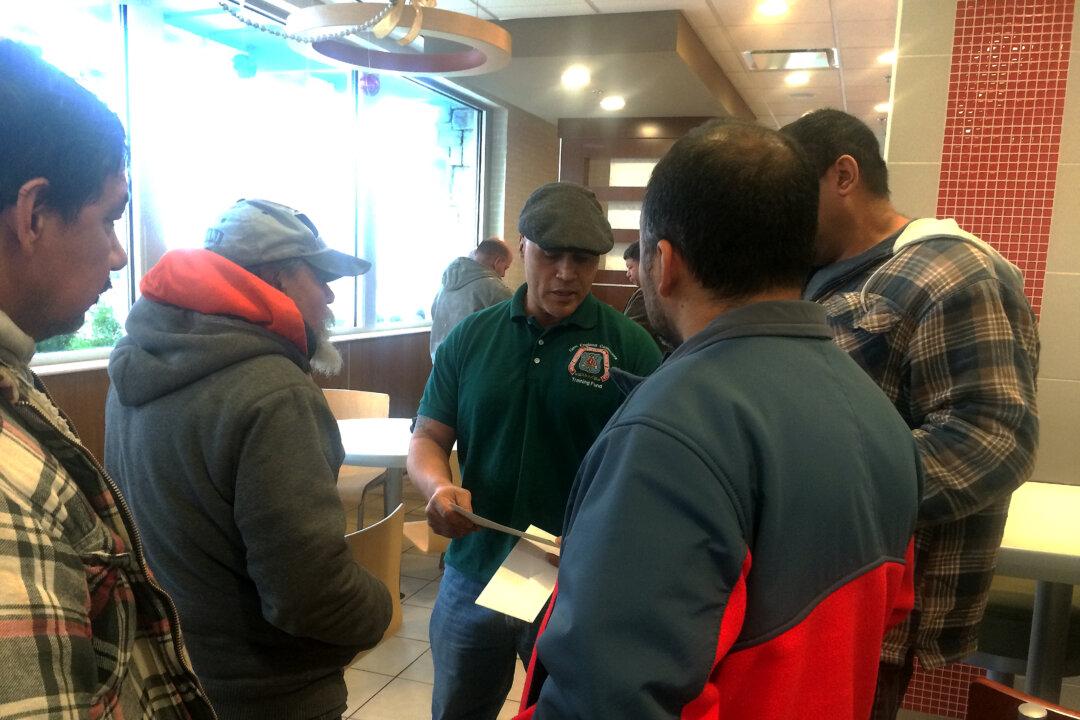BOSTON—Three carpenters in Boston received long overdue wages just in time for Christmas. Two of the men, who do not have documents to work in the country, support children with their wages.
The men were working on an affordable housing development in the Brighton neighborhood of Boston when over a month ago, their checks stopped coming.
Manny Gines, a business agent and organizer for the union New England Regional Council of Carpenters (NERCC), was instrumental in helping the men secure their wages. It happened at a meeting held at a McDonald’s restaurant.
“This is a very happy ending for the workers. We are a couple of days before Christmas, and these guys didn’t have nothing. They are working now, but God knows if they are going to get paid there,” Gines said.
The outcome is a positive one but the checks in their hands don’t tell the whole story.
Chain of Command
The chain of command on a construction site can be complicated. Usually the owner chooses a developer who in turn hires a general contractor (GC) to manage the construction. These days many GC’s are actually construction management companies because they don’t hire any workers to do any actual building. Instead, they hire supervisors to oversee the work, and subcontractors to do the work.
Sometimes these subcontractors hire other subcontractors, who hire other subcontractors, and in this convoluted milieu of responsibility it can be hard to tell who is to blame when something goes wrong.
After two weeks without pay, the three carpenters, with the help of Gines, filed wage complaint forms with the attorney general’s office.
The carpenters don’t belong to any union. They are Spanish speaking and two of them do not have papers to work in the United States. They are representative of a population that is high risk for wage theft, meaning they work, but they never get paid.
“Wage theft is literally an epidemic that is happening in the United States,” said Gines.






